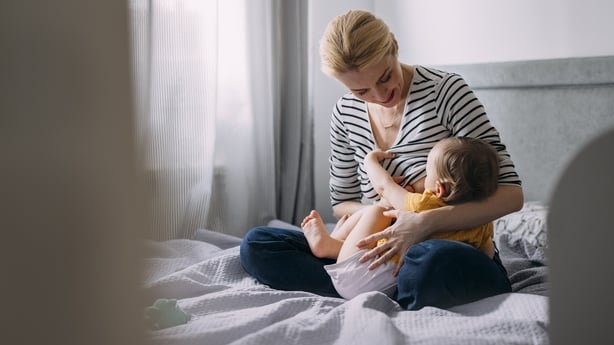Cancer is a scary word. But it's a disease that can be treated and, in some cases, prevented.
When it comes to breast cancer specifically, many different things can affect a woman's chance of developing the disease. Some of these factors we can’t alter, such as age and family history. But in around one in four cases, breast cancer can be prevented through changes to lifestyle.
That's why it is important to know and understand the risk factors and the measures you can take to reduce your chance of developing breast cancer.
Cut down your alcohol intake
Research shows that 1 in 8 cases of breast cancer in Ireland can be attributed to alcohol, and the risk increases with your level of intake. Alcohol can also increase certain hormones like oestrogen which, in turn, add to the risk of developing breast cancer.
Drinking alcohol doesn't definitely mean you will get breast cancer – it means your risk is higher.
Cutting down on your weekly intake can have many positive effects on your overall health, as well as lowering your chances of breast cancer.
Get into better diet and exercise habits
With the winter nights setting in, it can be easy to slip into habits that involve comfort eating and little to no exercise. But eating an unhealthy diet, not exercising enough and being overweight can significantly increase your chance of developing breast cancer.
Maintaining a healthy weight, committing to a regular form of exercise (a 30 minute brisk walk each day for example) and eating a balanced diet (one that is low in saturated fat and alcohol) are some proactive steps you can take to safeguard your health.
These habits are particularly important for women who have been through menopause. Being overweight or obese after menopause can cause more oestrogen to be produced by your body, and this can increase the risk of breast cancer.

Stop smoking
Smoking increases your risk of breast cancer, particularly if you began smoking in adolescence or have a family history of the disease.
There are lots of good reasons to stop smoking and reducing your risk of breast cancer is no exception.
Breastfeed - if you can
Research has shown that women who breastfeed are less likely to develop breast cancer compared to those who opt not to.
It is thought that because mothers who breastfeed don't ovulate as regularly, oestrogen levels remain stable in the body for longer.

Be aware that the contraceptive pill may increase your risk of breast cancer
Using the contraceptive pill slightly increases your risk of breast cancer. Once you stop taking the pill, the risk decreases and completely levels off 10 years after you stop taking it.
If you are concerned about taking the contraceptive pill, talk to your GP about your contraceptive choices.
Regularly check your breasts and attend screenings when invited
The main symptom of breast cancer is a lump, often painless. Around 90% of lumps end up not being cancerous but it’s vital that you get them checked. Other symptoms include a change in breast size or shape, discharge from the nipples (particularly if it is bloodstained), armpit lumps or swelling, and any changes in nipple shape or size.
After you reach the age of 50 and particularly if you have been through the menopause, you’re at an increased risk of getting breast cancer. That's why attending scheduled screening appointments is a vital step in early detection and successful treatment.
BreastCheck is Ireland's national breast screening programme that's free to women aged 50 to 69. Breast screening is population screening and is for healthy women without symptoms. While checking your breasts yourself is important for women at every age, for women aged 50 to 69, breast screening is one of the most effective ways to detect breast cancer at an early stage - before there are any symptoms.
For more information visit hse.ie/breastcheck.


